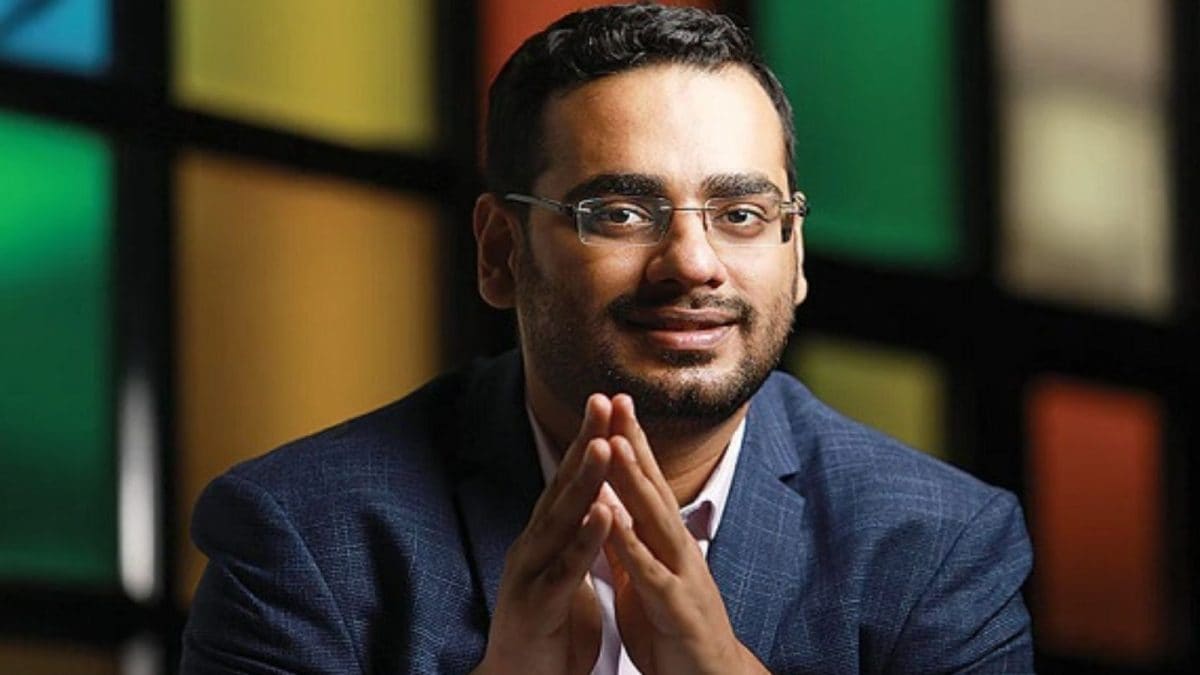Tech
Need a Pick-Me-Up? Try Spraying Your Face With Hypochlorous Acid

Skincare has a way of taking the body’s own biology, bottling it, and selling it back to us. Hypochlorous acid (HOCl) is the latest example. It’s a weak acid that your white blood cells naturally produce to fight infection and kill bacteria. Now it’s being spritzed across morning and nighttime routines as an all-around skin fix.
But HOCl isn’t new. Hospitals have been using synthetic versions for decades as a disinfectant. In fact, the lab-made form dates back to 1834 and was used in both World Wars. So while #SkinTok makes it sound like a cutting-edge discovery, dermatologists have known its potential for a long time.
Here’s what it is, how it works, and what dermatologists want you to know before adding it to your skincare routine.
Table of Contents
Hypochlorous Acid, Clarified
Chemically, HOCl is a weak acid and a potent oxidant. The body produces it during an immune response, but it can also be synthesized in a lab by running an electric current through saltwater. This synthetic version was first developed in 1834, used as a disinfectant during both World Wars, and has long been employed in hospitals for wound care and even in veterinary medicine.
Unlike harsher disinfectants like bleach, HOCl is biodegradable, nontoxic, and free of noxious fumes. Actually, research shows it can kill certain bacteria faster than bleach. In skincare, it’s bottled at ultra-low, stabilized concentrations. “Think of it as your skin’s built-in defense mechanism, bottled,” writes Dr. Mollie Kelly Tufman, molecular biologist and founder of the Beauty Lab.
Why It’s In Skincare
Dermatologists have used HOCl for decades to prevent infection, keep wounds clean, and reduce scarring. Early research suggests potential in treating acne vulgaris, seborrheic dermatitis, and tumor suppression. More recently, it’s popped up as topical sprays and mists, promising to calm breakouts and soothe redness.
Its appeal comes from its antimicrobial and anti-inflammatory properties. HOCl neutralizes acne-causing bacteria and other microorganisms that trigger flare-ups. “Compared to niacinamide, which works gradually to regulate oil and support your barrier, HOCl is more of a first responder,” writes Tufman. “It shows up fast, calms things down, and makes recovery easier for irritated or breakout-prone skin.”
“Benzoyl peroxide also has antimicrobial effects, but it can be a lot more drying and irritating, so it can lead to rashes or dermatitis,” says board-certified dermatologist Gloria Lin, MD. HOCl, by contrast, is gentle enough for sensitive skin and safe for conditions like eczema, psoriasis, or rosacea. Plus, unlike benzoyl peroxide, it won’t bleach your clothes or towels.
It’s effective for reducing bacteria from helmets, masks, makeup brushes, and sweaty gym gear. Some people spritz it under their arms or on their feet for a quick refresh (though it won’t replace deodorant). In eye care, HOCl is used to help with dry eyes, styes, and conditions like blepharitis and meibomian gland dysfunction (MGD). It can also reduce microbial buildup around the lashes and eyelids.
The Caveats
There are limits. Because it’s an oxidizer, it can interfere with ingredients like vitamin C and other antioxidants. If both are in your regimen, dermatologists suggest spacing them out (vitamin C in the morning, HOCl at night). Lin also says highly acidic exfoliants like strong AHAs can disrupt HOCl’s pH.
Stability is another concern. HOCl breaks down when exposed to light, heat, or poor packaging, so most products come in opaque bottles with stabilizers. Store in a cool spot. Don’t pour it into a different container; the molecule degrades once transferred.
Tech
Onnit’s Instant Melatonin Spray Is the Easiest Part of My Nightly Routine

I’ve always approached taking melatonin supplements with skepticism. They seem to help every once in a while, but your brain is already making melatonin. Beyond that, I am not a fan of the sickly-sweet tablets, gummies, and other forms of melatonin I’ve come across. No one wants a bad taste in their mouth when they’re supposed to be drifting off to sleep.
This is where Onnit’s Instant Melatonin Spray comes in. Fellow WIRED reviewer Molly Higgins first gave it a go, and reported back favorably. This spray comes in two flavors, lavender and mint, and is sweetened with stevia. While I wouldn’t consider it a gourmet taste, I appreciate that it leans more into herbal components known for sleep and relaxation.
Keep in mind that melatonin is meant to be a sleep aid, not a cure-all. That being said, one serving of this spray has 3 milligrams of melatonin, which takes about six pumps to dispense. While 3 milligrams may not seem like a lot to really kickstart your circadian rhythm, it’s actually the ideal dosage to get your brain’s wind-down process kicked off. Some people can do more (but don’t go over 10 milligrams!), some less, but based on what experts have relayed to me, this is the preferable amount.
A couple of reminders for any supplement: consult your doctor if and when you want to incorporate anything, melatonin included, into your nighttime regimen. Your healthcare provider can help confirm that you’re not on any medications where adding a sleep aid or supplement wouldn’t feel as effective. Onnit’s Instant Melatonin Spray is International Genetically Modified Organism Evaluation and Notification certified (IGEN) to verify that it uses truly non-GMO ingredients.
Apart from that, there may be some trial and error on the ideal amount for you, and how much time it takes to kick in. Some may feel the melatonin sooner than others. For my colleague Molly, it took about an hour. Melatonin can’t do all the heavy lifting, so make sure you’re ready to go to bed when you take it, and that your sleep space is set up for sleep success, down to your mattress, sheets, and pillows.
Tech
I Tested Bosch’s New Vacuum Against Shark and Dyson. It Didn’t Beat Them

There’s a lever on the back for this compression mechanism that you manually press down and a separate button to open the dustbin at the bottom. You can use the compression lever when it’s both closed and open. It did help compress the hair and dust while I was vacuuming, helping me see if I had really filled the bin, though at a certain point it doesn’t compress much more. It was helpful to push debris out if needed too, versus the times I’ve had to stick my hand in both the Dyson and Shark to get the stuck hair and dust out. Dyson has this same feature on the Piston Animal V16, which is due out this year, so I’ll be curious to see which mechanism is better engineered.
Bendable Winner: Shark
Photograph: Nena Farrell
If you’re looking for a vacuum that can bend to reach under furniture, I prefer the Shark to the Bosch. Both have a similar mechanism and feel, but the Bosch tended to push debris around when I was using it with an active bend, while the Shark managed to vacuum up debris I couldn’t get with the Bosch without lifting it and placing it on top of that particular debris (in this case, rogue cat kibble).
Accessory Winner: Dyson
Dyson pulls ahead because the Dyson Gen5 Detect comes with three attachments and two heads. You’ll get a Motorbar head, a Fluffy Optic head, a hair tool, a combination tool, and a dusting and crevice tool that’s actually built into the stick tube. I love that it’s built into the vacuum so that it’s one less separate attachment to carry around, and it makes me more likely to use it.
But Bosch does well in this area, too. You’ll get an upholstery nozzle, a furniture brush, and a crevice nozzle. It’s one more attachment than you’ll get with Shark, and Bosch also includes a wall mount that you can wire the charging cord into for storage and charging, and you can mount two attachments on it. But I will say, I like that Shark includes a simple tote bag to store the attachments in. The rest of my attachments are in plastic bags for each vacuum, and keeping track of attachments is the most annoying part of a cordless vacuum.
Build Winner: Tie
Photograph: Nena Farrell
All three of these vacuums have a good build quality, but each one feels like it focuses on something different. Bosch feels the lightest of the three and stands up the easiest on its own, but all three do need something to lean against to stay upright. The Dyson is the worst at this; it also needs a ledge or table wedged under the canister, or it’ll roll forward and tip over. The Bosch has a sleek black look and a colorful LED screen that will show you a picture of carpet or hardwood depending on what mode it’s vacuuming in. The vacuum head itself feels like the lightest plastic of the bunch, though.
Tech
Right-Wing Gun Enthusiasts and Extremists Are Working Overtime to Justify Alex Pretti’s Killing

Brandon Herrera, a prominent gun influencer with over 4 million followers on YouTube, said in a video posted this week that while it was unfortunate that Pretti died, ultimately the fault was his own.
“Pretti didn’t deserve to die, but it also wasn’t just a baseless execution,” Herrera said, adding without evidence that Pretti’s purpose was to disrupt ICE operations. “If you’re interfering with arrests and things like that, that’s a crime. If you get in the fucking officer’s way, that will probably be escalated to physical force, whether it’s arresting you or just getting you the fuck out of the way, which then can lead to a tussle, which, if you’re armed, can lead to a fatal shooting.” He described the situation as “lawful but awful.”
Herrera was joined in the video by former police officer and fellow gun influencer Cody Garrett, known online as Donut Operator.
Both men took the opportunity to deride immigrants, with Herrera saying “every news outlet is going to jump onto this because it’s current thing and they’re going to ignore the 12 drunk drivers who killed you know, American citizens yesterday that were all illegals or H-1Bs or whatever.”
Herrera also referenced his “friend” Kyle Rittenhouse, who has become central to much of the debate about the shooting.
On August 25, 2020, Rittenhouse, who was 17 at the time, traveled from his home in Illinois to a protest in Kenosha, Wisconsin, brandishing an AR-15-style rifle, claiming he was there to protect local businesses. He killed two people and shot another in the arm that night.
Critics of ICE’s actions in Minneapolis quickly highlighted what they saw as the hypocrisy of the right’s defense of Rittenhouse and attacks on Pretti.
“Kyle Rittenhouse was a conservative hero for walking into a protest actually brandishing a weapon, but this guy who had a legal permit to carry and already had had his gun removed is to some people an instigator, when he was actually going to help a woman,” Jessica Tarlov, a Democratic strategist, said on Fox News this week.
Rittenhouse also waded into the debate, writing on X: “The correct way to approach law enforcement when armed,” above a picture of himself with his hands up in front of police after he killed two people. He added in another post that “ICE messed up.”
The claim that Pretti was to blame was repeated in private Facebook groups run by armed militias, according to data shared with WIRED by the Tech Transparency Project, as well as on extremist Telegram channels.
“I’m sorry for him and his family,” one member of a Facebook group called American Patriots wrote. “My question though, why did he go to these riots armed with a gun and extra magazines if he wasn’t planning on using them?”
Some extremist groups, such as the far-right Boogaloo movement, have been highly critical of the administration’s comments on being armed at a protest.
“To the ‘dont bring a gun to a protest’ crowd, fuck you,” one member of a private Boogaloo group wrote on Facebook this week. “To the fucking turn coats thinking disarming is the answer and dont think it would happen to you as well, fuck you. To the federal government who I’ve watched murder citizens just for saying no to them, fuck you. Shall not be infringed.”
-

 Business1 week ago
Business1 week agoSuccess Story: This IITian Failed 17 Times Before Building A ₹40,000 Crore Giant
-

 Business1 week ago
Business1 week agoSilver ETFs Jump Up To 10%, Gold ETFs Gain Over 3% On Record Bullion Prices
-

 Tech1 week ago
Tech1 week agoRuckus gears up for networking partnership with TGR Haas F1 Team | Computer Weekly
-

 Fashion1 week ago
Fashion1 week agoSouth Korea tilts sourcing towards China as apparel imports shift
-

 Sports1 week ago
Sports1 week agoTransfer rumors, news: Saudi league eyes Salah, Vinícius Jr. plus 50 more
-

 Entertainment1 week ago
Entertainment1 week agoTrump touts ‘total access’ Greenland deal as Nato asks allies to step up
-

 Entertainment1 week ago
Entertainment1 week agoTikTok seals deal for new US joint venture to avoid American ban
-

 Sports5 days ago
Sports5 days agoPSL 11: Local players’ category renewals unveiled ahead of auction




















